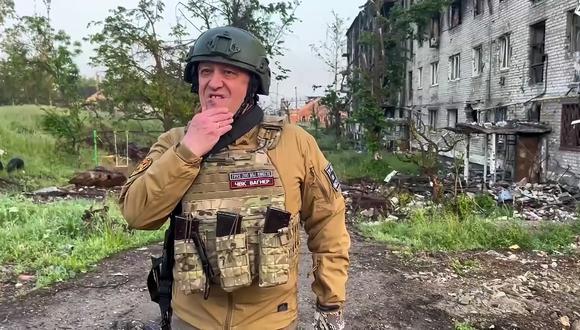
Russia strikes deal with Wagner Group; leader Prigozhin will not face prosecution

The Kremlin announced on Saturday that the rebellious Russian mercenary commander, Yevgeny Prigozhin, who had ordered his troops to march on Moscow before reversing course, will move to Belarus and not face prosecution. This decision is part of a deal aimed at defusing a crisis that posed a significant challenge to President Vladimir Putin’s long-standing rule.
The charges against Prigozhin for armed rebellion will be dropped, and his troops will also not be prosecuted. Meanwhile, the fighters from his Wagner Group who did not participate in the uprising will be offered contracts by the Russian Defense Ministry.
Also read | Explained: What is Wagner Group and why it is fighting Russia
Previously, Putin had vowed to punish those behind the armed uprising led by his former protege. The rebellion involved the seizure of a key military facility in southern Russia and an advance toward the capital. In a televised speech, Putin denounced the rebellion as a betrayal and treason. The Kremlin’s decision to allow Prigozhin and his forces to go free was driven by the desire to avoid bloodshed and internal confrontation.
Deal struck
Before the deal was struck, Prigozhin announced that his men, who were just 200 km away from Moscow, would retreat to avoid shedding Russian blood. His troops were ordered back to their field camps in Ukraine, where they had been fighting alongside Russian regular soldiers. Prigozhin demanded the ouster of Defense Minister Sergei Shoigu, whom he had criticized for his conduct of the war in Ukraine. However, it is unclear whether the Kremlin has responded to this demand.
The developments led to heightened security measures in Moscow, with checkpoints and armed personnel deployed on the city’s southern edge. Red Square was closed, and motorists were advised to avoid certain roads. However, with the retreat of Prigozhin’s forces, the situation in Moscow has calmed down.
The rebellion and the subsequent deal have implications beyond Russia. Ukraine, which has been engaged in a conflict with Russian forces, hoped that the infighting in Russia would create opportunities for its army to reclaim territory seized by the Russians. Analysts believe that even with the deal, Putin’s position has likely been weakened, which is seen as a positive development for Ukraine.
Also read | Dogs of war: The shadowy group accused of trying to kill Ukraine’s president
Ukrainian President Volodymyr Zelenskyy commented on the situation, stating that the march on Moscow exposed the Kremlin’s weakness and sent a message to Russian bandits, mercenaries, and oligarchs that capturing Russian cities and arsenals is easy. Zelenskyy reiterated his calls for Western countries to provide Ukraine with military support, including fighter jets and tactical ballistic missiles.
Former convict with ties to Putin
The rebellion led by Prigozhin’s private army, the Wagner Group, comes amidst Russia’s ongoing battle with the West, including sanctions and the arming of Ukraine. State-controlled TV networks in Russia covered the events extensively, with Putin’s statement and support from top officials and lawmakers being broadcasted. Chechnyan leader Ramzan Kadyrov also expressed support for Putin and called for suppressing the mutiny.
Prigozhin, a former convict who has close ties to Putin, gained notoriety in the United States when he and a group of Russians were charged with operating a covert social media campaign during the 2016 presidential election. Wagner Group, under Prigozhin’s command, has been involved in conflicts in Libya, Syria, Africa, and Ukraine.
The rebellion and subsequent retreat are expected to hinder Moscow’s war effort in Ukraine as Ukrainian forces launch a counteroffensive. The situation remains fluid, and the implications for Russia’s domestic and foreign policies are yet to unfold.
With agency inputs


